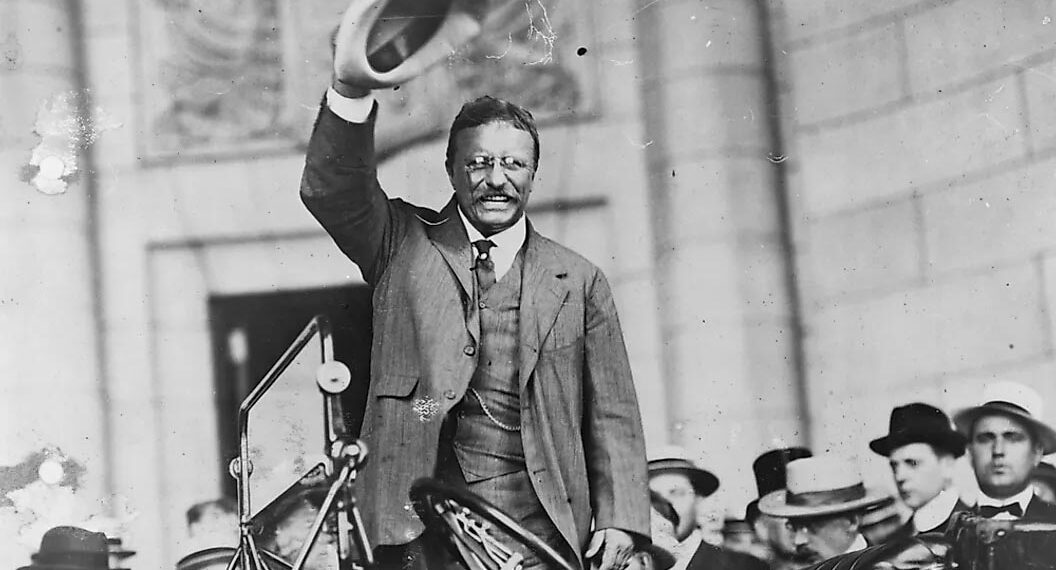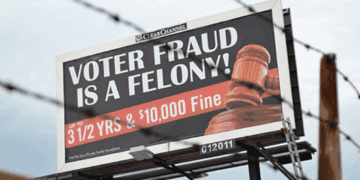By John F. Di Leo, Opinion Contributor
President Theodore Roosevelt was a great storyteller, and often a wise man on the subject of character.
He used to tell an interesting story from his days out west, regarding the brief period when this quintessential blue-blooded New Yorker was in the cattle ranching business in 1880s North Dakota.
One day, he said, one of his talented ranch hands reported that he had found a calf – from a neighbor’s herd – amongst Roosevelt’s cattle. If he acted now, he could brand this stray as one of TR’s, and “nobody would ever know.”
TR dismissed him on the spot, deciding that no matter how talented the employee, there was no value in retaining a dishonest employee. As TR memorably put it, “A man who will steal for me will steal from me.”
The story has been retold for a century, as a great lesson about morality and personal honor.
But I have always looked at it from another direction. What if this employee had understood his new boss’ absolute code of honor, and correctly evaluated that – in this case – honesty would serve him better than dishonesty? He might have therefore just reported to TR that he was on his way to return the neighbor’s stray calf to its proper owner.
The ranch hand might still have been corrupt at heart, but such proper judgment would have preserved his job for the time being. He would have been much better served by being honest, at least, on that particular day.
Fast forward to the present.
One of our greatest challenges in 21st Century America is the prevalence of vote fraud. We will stipulate here, for the moment, that we don’t know exactly how much there is, but we know there’s some, and since so many elections are won by a razor thin margin, we know – logically – that even a small amount (and it’s not small) is enough to flip many a race.
We are limited in what we can do to prevent vote fraud. In the places where the majority of it occurs, the entire mechanics of the election are controlled by Democrat politicians. While Republicans have succeeded in tightening the regulations in some places, they have been unable to correct the rules everywhere. Dens of iniquity such as Chicago, Philadelphia, and Cleveland remain solidly in the hands of the politicians who reward ballot fabrication.
The Republican Party – and the Trump-Vance campaign in particular – tend to aim for four reasonable tactics to win elections: improve turnout among core supporters, win a higher percentage of the middle, flip a higher percentage of the Dems to our side, and change the law where possible to make it harder to cheat (a broad term which includes everything from ballot fabrication to allowing multiple votes by the same person, from allowing illegal aliens and other noncitizens to vote, to tampering with results in the computer systems, and much more).
All these are valid, but they aren’t enough, primarily because the states where we most need to cut down on fraud happen to be the states where it’s hardest to do so.
We love the idea of President Trump’s pithy goal: “an election too big to rig.” We like the title of Hugh Hewitt’s book a few years back: “If It’s Not Close, They Can’t Cheat.” But such lofty desires don’t ring true.
A single nursing home administrator – if he wants to – can fabricate a hundred or more ballots and never be caught. Of course they aren’t all corrupt, but some are. How many? And how many nursing homes are there in America?
A single dormitory building manager or apartment building manager – if he wants to – can fabricate dozens of ballots on behalf of former residents. Of course they wouldn’t all do this; they wouldn’t all even realize they could – but some do. How many? And how many apartments and dorms are there across this country?
A single immigration activist or sanctuary activist – if he wants to – can get dozens or even hundreds of noncitizens to cast ballots, having already been automatically registered to vote thanks to the Motor Voter laws. They might not even realize they’re not legally allowed to do so; they only know their nice advocate is encouraging them to do so. We don’t know how often this happens; we only know that it does. And we know how many noncitizens there are in America; even a tiny percentage of them is a huge number.
Let us return to President Theodore Roosevelt, and his experience in North Dakota, 140 years ago. He had a corrupt employee who signed his own resignation letter by announcing his corruption to his boss. But it didn’t have to happen that way.
If the employee had thought things through, he might have realized that he would personally be better off if he didn’t do anything crooked that day. He might still have been corrupt in his heart; we can’t do anything about that. And he might still have been crooked in the future; it’s just in his nature. But he could have kept his job for the time being. Sometimes, honesty is the best policy, even for a criminal, at least in the short term.
Just because the right has been unsuccessful at completely eliminating vote fraud, that doesn’t mean that vote fraud has to happen. There is still personal choice in the matter. The people who have been committing vote fraud for years don’t necessarily have to keep on doing it. They might, for example, skip an election. Or they might perhaps just not be as motivated as usual, and might steal less this time.
This doesn’t have to be as far-fetched as it probably sounds.
Many of the party hacks who work for the big cities’ political machines do so for a living; their behavior may not be likely to change.
But the others – the individuals with residences in two states who illegally cast ballots in both, the apartment managers who collect mail-in ballots from the names who’ve moved out of the building, the family members who cast absentee ballots in the names of their deceased relatives still on the rolls, the pro-minority activists who used to think the Democrats were on their side – what if they were to begin to question their belief system this year?
We have read the polls. All kinds of demographics are shifting away from the Democrats and in particular, toward Donald Trump and his populist philosophy. What if that group includes some of the former practitioners of vote fraud?
Or perhaps, even more tantalizing a thought: what if some of the practitioners look at these past four years, and realize that the welfare state on which they depend, the standard of living that they and their clients rely on, is all in jeopardy, precisely because of the Biden-Harris crowd and their destructive policies?
What if we could convince these usual practitioners of fraud that they’d be better off – and their interest groups, in particular, would be much better off – if the Republicans get back in power for a couple of years, just to straighten out the mess so there’s something to steal again?
Is it likely? Actually, yes. It has to be possible.
If some percentage of the rank and file now realizes that they would be better served – at least for now – by a Trump administration than by a Harris administration, then it only makes sense that some percentage of the former practitioners of vote fraud might realize it too.
And we don’t even need them “to steal for me.” All we need, for the nation to be saved, is for them to hold back their natural instincts, just for once, and serve their own best interests by having the discipline to NOT “steal from me.” They could stand down, for their own good, as well as ours.
Just this once.
Couldn’t hurt to try.
Copyright 2024 John F. Di Leo
By Janelle Towne, Opinion ContributorOn Friday, schools across Illinois were closed because it was -6 degrees outside. Not because of snow or ice, but because it’s simply too...
Read moreDetails








